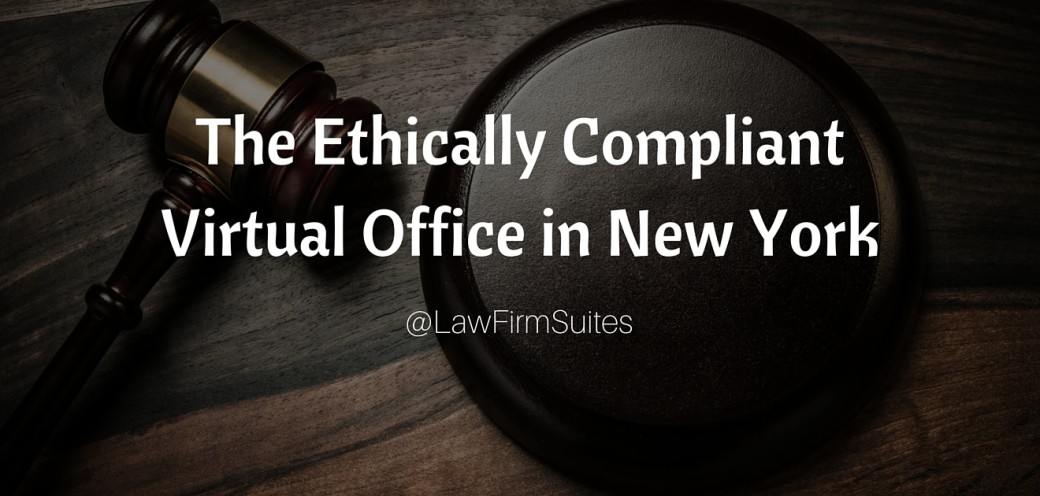NYSBA CLE panel recommends complying with New York Judiciary Law s. 470 office requirement pending court decision, ethically compliant virtual office will suffice.
UPDATE FOR 2016: In a two-to-one split decision released on April 22, 2016, the U.S. Court of Appeals for the Second Circuit held that a New York State law requiring non-resident attorneys to have a physical office address in New York did not violate the privileges and immunities clause of the U.S. Constitution.
Accordingly, all New York lawyers must comply with the office requirement imposed by Judiciary Law §470. See this article for a full update.
Our profession has been under intense economic pressure for nearly a decade, forcing lawyers to seek more efficient ways to practice.
Some lawyers are choosing to drastically reduce their firm’s office footprint, or eliminate it altogether by practicing virtually. Others are looking to dust off underutilized bar admissions in other jurisdictions to find new clients in different cities.
But in many cases, the profession is regulated by ethical rules that haven’t quite kept up with changes in the way lawyers practice, or the technology that’s available to them.
New York’s dated law office space rules
This certainly has been the case in New York, whose “law office requirement” has origins that date back to the 19th century.
I recently had the opportunity to participate in a panel discussion on the ethics of virtual office in New York. It was part of a CLE Webcast sponsored by the Law Practice Management Committee of the New York State Bar Association.
The driving force behind virtual office ethics in New York is Judiciary Law s. 470, which requires all attorneys practicing in New York to have “an office for the transaction of law business.”
The legal profession is regulated by ethics rules that haven’t kept up with the practice. Click To TweetUnder the law, New York residents can use their homes as their Section 470-compliant office, and use any type of virtual office in New York, including a mail drop, for a local business presence (as long as they are in compliance with all other ethics rules).
Judiciary Law s. 470 unfairly discriminates against non-residents
Non-resident attorneys, however, are left with the trouble of figuring out what an “office for the transaction for law business” means, and whether a virtual law office in New York meets that definition. Additionally, they have no explicit guidance from the legislature or the Bar on this issue.
Judiciary Law s. 470 was challenged on constitutional grounds by Ekaterina Schoenefeld, a New Jersey resident admitted to practice law in New York. Ms. Schoenefeld was also a panelist during the webcast.
Ms. Schoenefeld won summary judgment at the Northern District of New York, and an opinion is expected shortly on the State’s appeal of that decision.
JL470 is bad law, but follow it anyway (for now)
As was referenced by Ms. Schoenefeld during the webcast, Judiciary Law s. 470 was deemed unconstitutional by the Northern District of New York, and the State did not seek a stay pending appeal. So, technically, Section 470 is not good law.
However, several examples were cited where state courts were still enforcing Section 470 after the District Court’s decision in Ms. Schoenefeld’s case. This causes serious complications for non-resident attorneys and their litigant clients, including situations where the attorney’s pleadings were dismissed for not meeting the Section 470 office requirement.
While it is likely that these firms would win on appeal, the unanimous recommendation of the CLE panel was for litigators to continue to comply with the Section 470 office requirement until the decision comes down on the Schoenefeld appeal. The logic is, considering that firms can easily acquire a Section 470-compliant office for under $100 per month by using a virtual law office at any reputable business center, it’s not worth risking the aggravation and expense of an appeal, or possible exposure to a malpractice claim.
Features of the ethically compliant virtual office for non-residents
In the video presentation included at the top of this article, I explain the CLE panel’s recommendations for compliance with Judiciary Law s. 470, and outline the profile of the ethically compliant virtual office in New York.
We’ll continue to monitor and update you the status of Ms. Schoenefeld’s case as we get more information.


